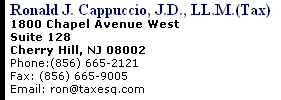|
.
|
One of the major challenges facing your business today
is the creation and maintenance of a Web site. But since
copying material is so easy on the Internet, it's critical
that you know how to protect the content on your site, along
with other published work that your company produces.
|
A copyright
prevents
others from:
Reproducing a work in copies
or sound recordings;
Creating spin-off
or "derivative" material;
Distributing copies
to the public by sale, rental, lease or transfer
of ownership;
Performing
literary, musical, dramatic and motion picture works,
and
Displaying
copyrighted pictures, graphics or sculptured
works.
| The
answer lies in copyright safeguards. Copyright
protection exists from the moment a work is created in any
tangible medium. It only protects a specific expression of an
idea.
To be valid, a copyrighted work must have some minimal
level of originality. In many cases, the author of a
copyrighted work is not the owner so it's important for your
company to secure its rights.
Let's say you hire a freelancer to write a book about your
company. If you don't have a contract stipulating that you own
the copyright, the writer probably owns it. Just placing the
copyright symbol on the book with your name is not enough.
A work authored by your employees within the scope of their
designated employment is called a "work made for hire". As
such, the employer is the author of the work — not the person
who created it. This is also the case with contractually
commissioned works.
How long does a
copyright last? The term is based
on the identity of the owner. If the author is the owner, the
duration of the copyright is 50 years after the author's
death. In "work made for hire" situations, the term of the
copyright is 75 years from the date of publication or 100
years from the date of creation.
Copyright
holders should place a copyright notice as follows © YOUR NAME
Year of Publication. For example, "© Ajax Corp 2001. All
Rights Reserved."
What
about putting material you find elsewhere on the Internet on
your Web site? Don't make the mistake of thinking you can copy
anything off the Web and use it for free. Even if you give
credit to the author, you can still be infringing on the
copyright if you don't have permission to use the
work. | 
| 





